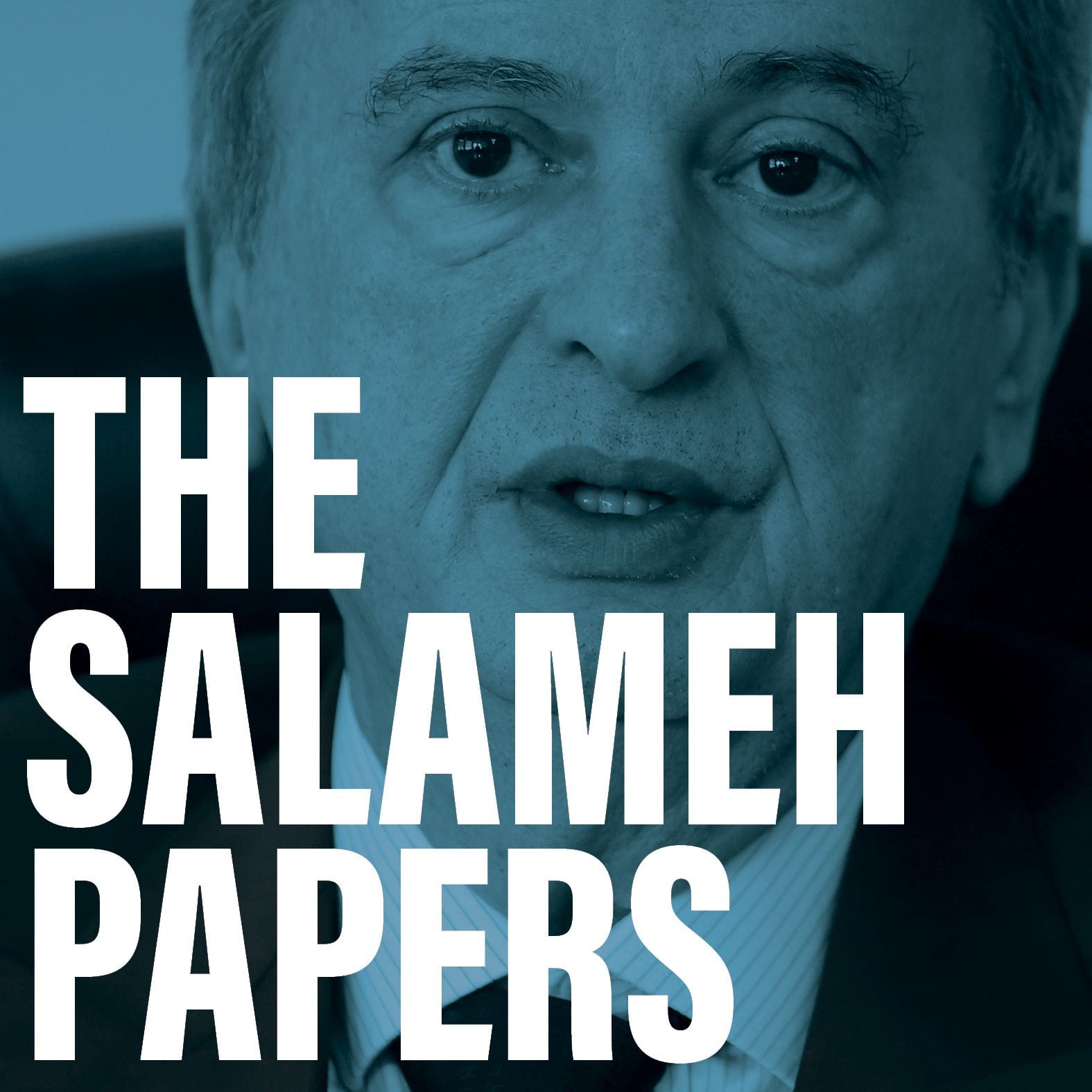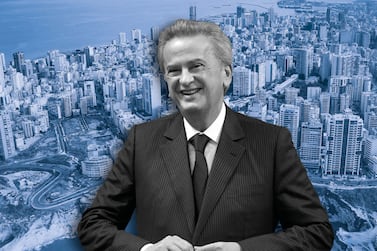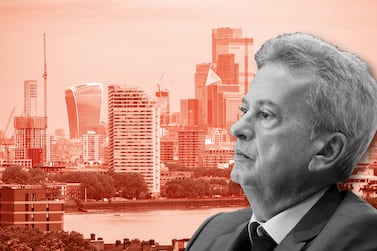The Salameh Papers: Full coverage here
Luxurious offices on the prestigious Avenue des Champs-Elysees, an ex-French central banker and a mysterious Ukrainian woman in Paris. This seemingly eclectic list has a common denominator: a connection to Lebanese central bank governor Riad Salameh, who is suspected of having embezzled hundreds of millions of dollars of public funds.
There is a lot we know about in the French investigation into Mr Salameh in relation to multimillion-euro luxury apartments in Paris bought with funds allegedly misappropriated from Lebanon's central bank.
The assets under scrutiny include undeclared Banque du Liban offices at 66 Avenue des Champs-Elysees leased to Eciffice Business Centre for €5 million from 2011 to 2021, as revealed in French judicial documents obtained by The National.
Eciffice's manager, Anna Kosakova, a 46-year-old Ukrainian woman, is Mr Salameh's romantic partner of over two decades, with whom he has a daughter. She drew a monthly salary of €2,000 from the company.
These offices were supposed to be a “recovery centre” providing a back-up server in case of failure in the Beirut main office, but turned out to have “no operational justification”, according to the French judiciary.
But the tangled web of evidence keeps unravelling, with new information and characters coming to light.
The Salameh Papers - The National uncovers details on allegations against Lebanon banking chief
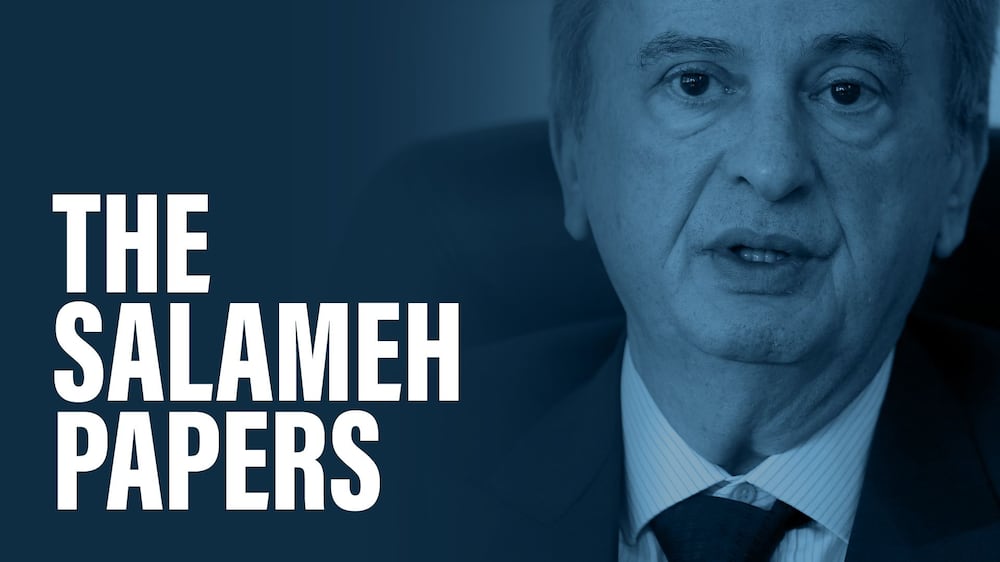
One such figure is Christian Noyer. The former French central banker, who held the position of head of the institution from 2003 to 2015, became the subject of a separate preliminary investigation launched by the France National Financial Prosecutor's Office in April 2022 around the allegation of an illegal conflict of interest, as confirmed by a French judicial source speaking to The National.
'Lack of denunciation of the anomalies'
This is where the three threads merge.
According to the judicial documents, Mr Noyer has come under scrutiny by the French judiciary for receiving a total of €80,000 from Lebanon's central bank for consultancy services in 2018 to develop a digital currency in the country through his company Cn Europa Conseil.
Mr Noyer also allegedly failed to declare to the French central bank the consultancy services he billed to Lebanon's central bank, in violation of French law.
Former governors are required to obtain authorisation from the Banque de France to engage in any professional activities for three years after their term ends, as they continue to receive financial compensation.
The judiciary suspects that these transfers might have been used as compensation in exchange for leniency regarding the undisclosed Banque du Liban Paris offices rented to Mr Salameh's partner.
The 66 Avenue des Champs-Elysees address had indeed raised significant suspicions under French law, as Lebanese authorities were legally bound to declare the Banque du Liban offices, a requirement for any banking institution operating within the country.
However, the Banque de France told both the judiciary and the media that these offices were not officially registered in France.
The French judge also noticed a slew of irregularities, on top of a potential conflict of interest. The irregularities include the significantly higher prices charged to Banque du Liban – 32 per cent more than another client – as well as the near-empty state of the offices discovered during a police raid in October 2021.
“It cannot be ruled out at this stage that these payments not declared to the Banque de France” were compensating the “lack of reporting of the anomalies” related to the payments for Banque du Liban's Parisian offices, the French judge wrote in a seizing order.
The payments made from the Lebanese central bank to Eciffice should have been easily detectable, as they were done through the Banque de France.
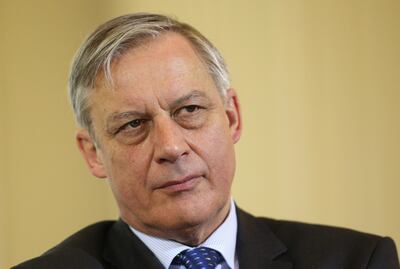
Mr Noyer provided undisclosed consultancy services to other clients. These included the Bank of Beirut, which is managed by Lebanese banker Salim Sfeir, and French banking group Credit Agricole.
The value of these undeclared consultancies was a total of €198,345, according to correspondence between the Banque de France and the French judiciary seen by The National.
The same document indicates that Mr Noyer reimbursed this amount to the Banque de France after the investigation into Mr Salameh exposed the truth.
The preliminary investigation is continuing.
Neither Mr Noyer nor Mr Salameh responded to The National's repeated requests for comment.
Mr Salameh has consistently maintained his innocence, claiming that no public funds were deposited into his accounts.
'You have to ask Riad Salameh'
Since it began in 2021, the French investigation into Mr Salameh has swiftly gained momentum under the supervision of judge Aude Buresi, with the issuing of an arrest warrant for the governor, closely followed by an Interpol red notice.
The French judiciary has also put three people under formal investigation – his former aide, Marianne Hoayek, Ms Kosakova, and the Lebanese banker Marwan Kheireddine.
The 66 Avenue des Champs-Elysees property is only a small part of the probe, with €5 million allegedly embezzled.
But the scheme appears to be much broader: Mr Salameh is suspected of having embezzled $330 million of public funds through his brother's company Forry, an alleged shell company that is accused of siphoning off funds through a 0.38 per cent commission levied on transactions between Lebanese banks and the central bank.
The proceeds from these commissions enabled Mr Salameh and his inner circle to amass a significant real estate portfolio across Europe, including properties valued at a minimum of €14.3 million ($15 million) in upscale neighbourhoods of Paris.
The properties have been seized by the judiciary as part of a joint anti-money laundering scheme co-ordinated by Eurojust, the European Union Agency for Criminal Justice Co-operation.
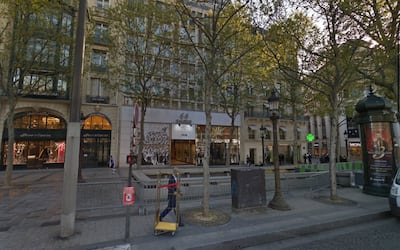
The intricate flow of funds from the Lebanese central bank to Europe shows a complex scheme, involving “layering” operations often associated with “money laundering” practices, the French judge wrote.
In France, Ms Kosakova, whose connection with the governor and role in his dealings had remained a closely guarded secret for decades, even among those well-versed in the inner workings of the Banque du Liban, assumed a pivotal role in the Parisian purchases.
She described Mr Salameh to the French police, who quizzed her for two days in July last year, as the “love of her life”, and described a man with a “brilliant career in finance, before he became governor”, during her hearing with fraud squad detectives, which led her to be formally investigated, as first revealed by French investigative journal Mediapart in December.
Ms Kosakova said that the two met in 1999, while he was already married, two years after she completed her studies in economics in Ukraine. She said they would see each for other one week every month and still “call each other three to four times a day”, in the minutes of the hearing, seen by The National.
From 2007, the pair shared a residence in 65 Avenue Gorges Mandel, in the heart of Paris's upscale 16th arrondissement, another property suspected to have been bought with Lebanese public funds.
The same year Mr Salameh recognised as his own daughter Ms Kosakova's child E. Salameh, born in 2005.
From 2015, Ms Kosakova started to assume a central role in the two Luxembourg-based companies related to the purchases in Paris: SCI ZEL, a real estate investment company, and its parent company, BET SA, an asset management firm.
That year, she became the sole shareholder of BET SA as well the manager of SCI ZEL, previously managed by Mr Salameh's brother, who also transferred his 1 per cent stake in SCI ZEL to her.
BET SA, which owns the 99 per cent remaining, injected more than €17 million into SCI ZEL to finance the Parisian real estate acquisition.
These millions “come from Riad Salameh”, Ms Kosakova told the police.
The European judiciary managed to trace the origin of these funds back to Forry's account at Lebanon's central bank through the two Luxembourg-based companies, before reaching France.
Ms Kosakova said she never asked more about the funds' origin, which left the police perplexed, considering she had been bestowed with “a multimillion-euro fortune” without having to “pay a single penny”, they told her.
“You have to ask Riad Salameh” and " I don't know”, she repeatedly told French police, according to documents.
Ms Kosakova's account of the events did little to convince the investigators, especially considering her “knowledge in economics”, and the suspicious financial flows across countries without any apparent “economic rationale”- except perhaps to “conceal the origin of the funds or the real owner”.
She was put under formal investigation for criminal conspiracy, organised money laundering and aggravated tax fraud laundering.
Ms Kosakova did not respond to The National's request for comment.
The judiciary never got to hear Mr Salameh's account of the story in Paris as he failed to appear at his hearing in Paris, scheduled in May.


